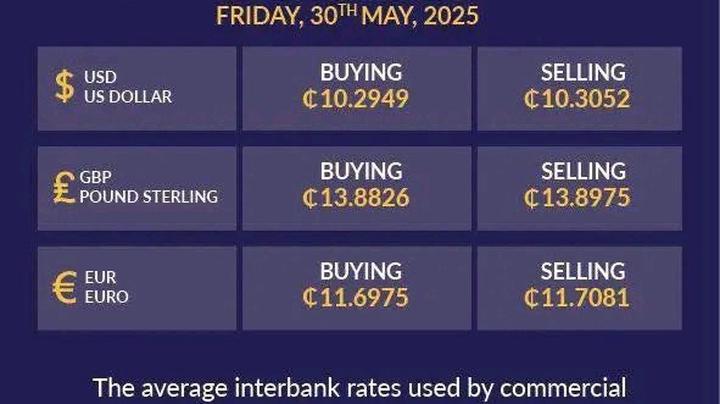According to Ghanaweb report, The Bank of Ghana’s latest update on the exchange rate has triggered renewed anxiety among citizens, as the Ghanaian cedi begins to slide against the US dollar after two months of relative stability. The development has stirred concerns over a potential surge in the cost of living, with market players and ordinary citizens warning of imminent price hikes.
On Thursday, May 29, the US dollar was trading at GH¢10.28 for buying and GH¢10.27 for selling. By Friday, May 30, the rates had edged up to GH¢10.29 and GH¢10.30 respectively. While the margin of increase appears slight, traders across the country say it marks the start of another wave of inflation, particularly on imported goods.
In bustling markets like Makola in Accra, Kejetia in Kumasi, and Kaneshie, shop owners and importers are already making adjustments to their pricing structures, anticipating a rise in the cost of restocking foreign goods.
“This is how it starts,” said Ama Serwaa, a shopkeeper at Kaneshie Market. “A few pesewas today, and next week we are back to higher prices for rice, oil, and canned food. It always hits the poor the hardest.”
The slight recovery of the dollar has undercut the optimism that followed the cedi’s previous stability, which had helped moderate fuel prices and transportation fares. Many Ghanaians are now concerned that this reversal may lead to a chain reaction of fuel price hikes, higher transport costs, and ultimately, increased prices for essential goods.
“This economy is like a pendulum,” said Kwesi Mensah, a commuter at Circle. “One day, things are calm, and the next, you can’t afford basic things. We need solutions that last.”
The Bank of Ghana has yet to issue a formal statement addressing public concerns, but economic analysts say the cedi’s vulnerability is rooted in the country’s continued dependence on imports and foreign currency.
Some observers are calling on the government to take decisive action by strengthening support for local industries and reducing the nation’s dollar dependency.
“This isn’t just about numbers,” said Adwoa Owusu, a university student in Winneba. “We want policies that reflect in our daily lives — lower food prices, better transport systems, and affordable education. Not just applause from foreign media.”
